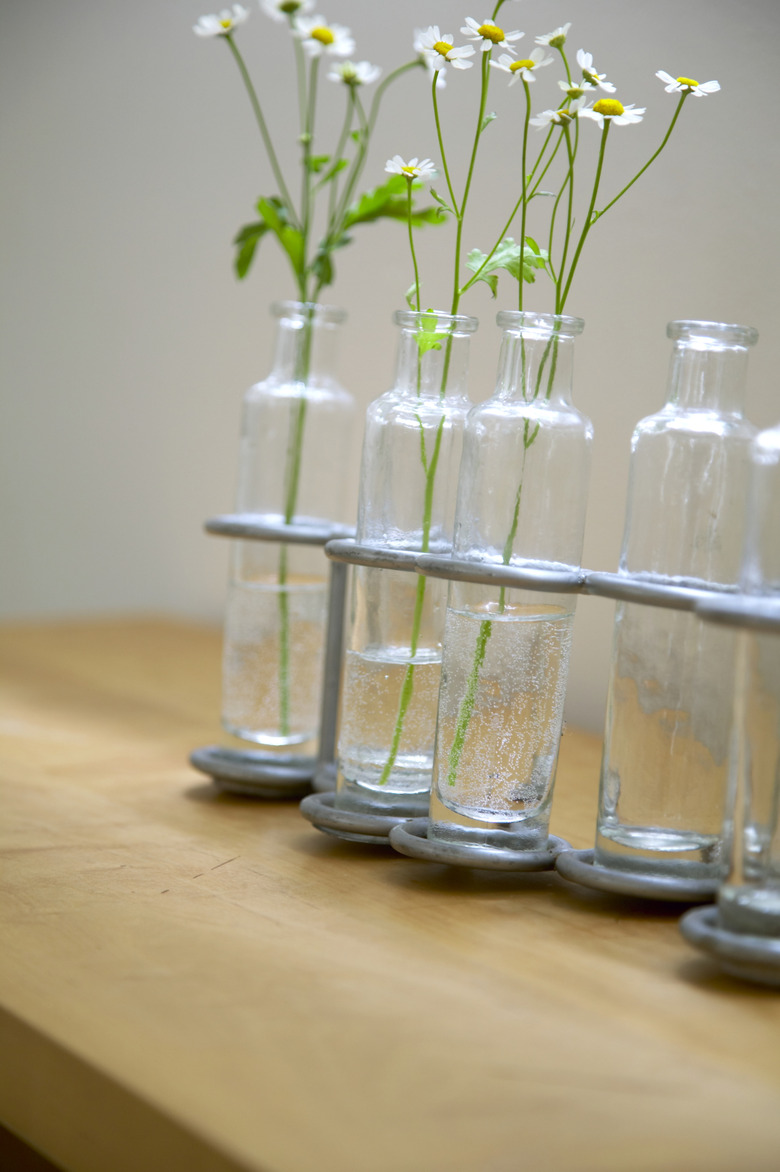How Long Does It Take For A Glass Bottle To Degrade In A Landfill?
Glass is among the things that do not decay, at least not noticeably. It is an incredibly stable material that degrades very slowly, if at all. Glass artifacts that date back to the 13th century B.C. have been found in areas of Egypt. Older finds may have been manufactured in what was once Mesopotamia. These discoveries show that even if glass bottles break into smaller pieces, the glass will retain its chemical composition for thousands of years. Recycling glass bottles is a good way to prevent them from languishing in landfills.
TL;DR (Too Long; Didn't Read)
A glass bottle will take thousands of years to decompose if its not recycled.
Glass Creation
Glass Creation
The glass-making process has been perfected over thousands of years. Glass used to be available only to pharaohs and royals but has become an everyday item. Glass can be made in several different ways, with different chemical compositions. Throughout history, however, soda-lime glass has been the most common form of glass produced, according to scientists with Texas A&M University's Nautical Archaeology program. Most glass consists primarily of silica, a component of sand, mixed at very high temperatures with sodium carbonate or potassium carbonate and a small amount of lime for stability. Glass made with sodium carbonate (soda glass) is usually more transparent than glass made with potassium carbonate (potash glass).
Growing Old Gracefully
Growing Old Gracefully
Glass does break, but it does not readily break down. The glass decomposition rate is essentially nil. Over time, the surface of some glass bottles will absorb moisture. This results in devitrification, a process that causes the outer layer of glass bottles to crystallize and flake off. Devitrification takes place very slowly and results in a cloudy or iridescent appearance. Modern glass is made from an incredibly stable formula, however, so the glass bottles people throw in the garbage today will most likely remain in landfills for thousands of years, experiencing only slight devitrification.
Recycling Glass
Recycling Glass
Recycling glass bottles will prevent them from entering landfills. According to the U.S. Environmental Protection Agency, only about 28 percent of post-consumer glass is recycled in the United States. Millions of tons of glass enter U.S. landfills every year; the majority of this glass was used as food and beverage containers. Glass bottles can be repeatedly recycled. Most glass dropped off at recycling centers is crushed into small pieces called cullet, a product that is less expensive for glass manufacturers to purchase than raw glass-making materials. Cullet is most often mixed with raw material to make new glass containers, but recycled glass is also used to make wall insulation, tiles and countertops.
Reusing Glass
Reusing Glass
Recycling keeps glass bottles out of the garbage, but it does require energy to crush, melt and reform glass. Reusing glass bottles can be an artistic and environmentally friendly alternative to recycling. Glass bottles make beautiful vases for freshly cut flowers. Bottles with wide mouths can be perfect for rooting plant cuttings or growing herbs on a windowsill. Empty wine bottles hold tapered candles nicely. The options for upcycling glass bottles are endless if you have a glass cutter, some sandpaper and a vivid imagination.
Cite This Article
MLA
Cairoli, Sarah. "How Long Does It Take For A Glass Bottle To Degrade In A Landfill?" sciencing.com, https://www.sciencing.com/long-glass-bottle-degrade-landfill-17886/. 16 July 2018.
APA
Cairoli, Sarah. (2018, July 16). How Long Does It Take For A Glass Bottle To Degrade In A Landfill?. sciencing.com. Retrieved from https://www.sciencing.com/long-glass-bottle-degrade-landfill-17886/
Chicago
Cairoli, Sarah. How Long Does It Take For A Glass Bottle To Degrade In A Landfill? last modified August 30, 2022. https://www.sciencing.com/long-glass-bottle-degrade-landfill-17886/
